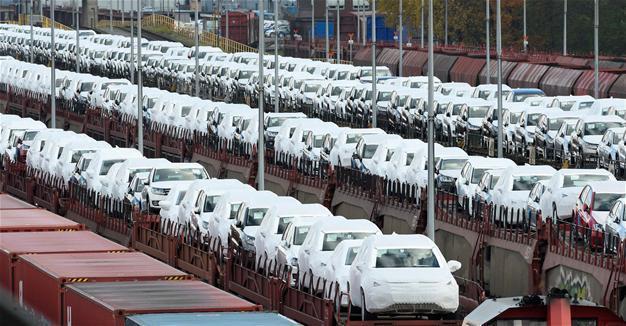European industry rebounds after Brexit blip
FRANKFURT - Agence France-Presse

REUTERS photo
Industrial output surged in August in three of the eurozone’s top economies, data released on Oct. 7 showed, providing evidence to of a rebound from the Brexit vote shock.
Meanwhile output unexpectedly dropped in Britain after having initially held up following the June vote to leave the European Union.
Industrial production in Germany, Europe’s biggest economy, shot up 2.5 percent higher in August from July, when it tumbled by 1.5 percent, according to data from the federal statistics office Destatis corrected for price, seasonal, and calendar effects.
Analysts surveyed by Factset had predicted an increase of just 1 percent.
Meanwhile in France, industrial output jumped 2.1 percent in August, having slid 0.5 percent in July, the French statistics office Insee said.
In Spain, industrial output climbed 1.4 percent after having been essentially flat in July, according to data from Ine.
The results suggest “the initial Brexit shock has been digested” in the wake of Britain’s June 23 vote to quit the EU, analyst Carsten Brzeski at ING Diba bank said after the German figures were released.
“The outlook for the third quarter all of a sudden looks much brighter,” he added.
Meanwhile economist Stephen Brown at Capital Economics said that sharp rises “suggest that industry might contribute positively to eurozone GDP growth” in the third quarter.
He called the strong numbers from France and Spain a surprise, noting that the consensus forecast had been for a 0.7 percent gain in France and a 0.1 percent dip in Spain.
The data provides hard evidence to back up surveys of businesses that pointed to quick recovery for the European economy, although analysts have warned of a further impact as Brexit negotiations approach and get underway next year.
Britain’s finance minister Philip Hammond warned earlier this week of “some turbulence as we go through this negotiating process.”
